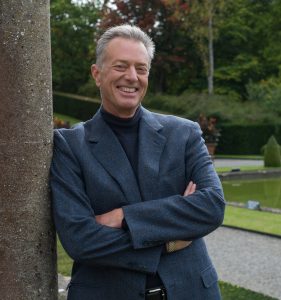Read the first half of the story here to learn how hopes were raised and then dashed.
In the dark weeks that followed, some unexpected glimmers of light appeared. Producer-director Bart Gavigan (End of the Spear, Luther) and Emmy and Bafta-winning writer-director Norman Stone (Shadowlands) read my unpublished manuscript. Film executives at this level are inundated with scripts. For them to take the time to read a novel – five times the length of a feature-film screenplay – was a huge gift. As was their response. Both were unreservedly positive and urged me to begin work on the script. Bart went so far as to offer detailed notes on how he felt the screenplay should be shaped; I liked these so much I decided to incorporate them into the novel.
A few months later, my newly-completed screenplay was passed to Ileen Maisel, producer of Golden Compass and many others. She invited me to a meeting at Claridges, where she had taken up temporary station. She informed me that it was impossible for her to take the project herself, as she was fully committed to a new series (The Dresden Files, soon to be aired on ABC). But she liked my work, and wanted to remain in contact.
As a result of this meeting, Island of Time then journeyed to Los Angeles. Soon after, so did I.
My third Hollywood meeting was with David Lipman (producer of Shrek and Ironman), then president of Starlings Entertainment, and his DD Emily Gottlich. They both were the exact opposite of everything I’d been led to believe about top-tier Hollywood executives. They were soft-spoken, highly intelligent, and as gentle as they were intense. Because they had simply asked to meet, without any actual response to my story, I had been warned by others that they probably liked my writing but were not interested in that particular script. So I had practiced pitching two other stories. For days.
Their offices were in a brand new building on the corner where Wiltshire Boulevard met the Pacific Ocean. Not really. Wiltshire actually dead-ends into Ocean Avenue, which then fronts a narrow park, then the cliff which drops down to the PCH, then the beach and the Santa Monica Pier. But when I exited the elevator and entered the Starlings penthouse offices, all I could see through the wall of glass was…
Blue.
And storm clouds. And rain. Because it was a freezing rain-swept February day in Los Angeles. For which David and Emily apologized. Like I was expected to be seriously bothered by the weather.
So I there I was, poised on the edge of their designer sofa, with the two of them seated with their backs to the Pacific. Ready for them to ask if I had anything else I could offer…
The words they spoke just didn’t seem to fit inside my head.
It actually took a while for their news to register. Probably thirty seconds. Less. But it felt like hours. Then…
They loved my script. They wanted to buy it. Not option. Buy. Put it into production. Immediately. They had decided to approach David Womark, producer of such hits as Deepwater Horizon, to run the project.
Boom.
I have flashing images of what happened after. They wanted to know if I had a sequel. Thankfully, I was so deeply engaged with the story that I already had an idea. I pitched that, scarcely believing what I was hearing from them.
Sometime later, I left. Floated down the park. Called my wife. Drove to the hotel. Too excited. Walked through the wind and the rain. For hours.
The next thing I heard was, their legal department would not get around to sending me the T&C Sheet (contractual terms and conditions, negotiated before the contract itself is penned) until after Cannes. At the time, the news was mildly hilarious – my project was delayed because of something they needed to get ready for presenting in France, and the same should happen to my film the following year.
My film.
The next four months seemed endless. A few high notes were reached; film budgeted at thirty million, my payment upon first day of filming was to be six hundred thousand dollars, and so forth. But mostly it was a time of tension, and trying to stay patient, and unanswered phone calls to the legal department.
Like I said, endless.
Four months stretched to five, then six, and suddenly the summer was over and autumn had started, and then autumn was winding into winter, and I still did not have the actual contract.
When the phone call finally came, it almost felt like I knew what had happened before the connection was made. Karine Martin, CEO of Starlings, told me in our first-ever conversation that Starlings was being sold. And the buyers only wanted their television division and their film-investment fund. And all of the current film projects were being dropped. And earlier that day, David Lipman had been fired.
Those words still weigh several thousand pounds. Each.
I actually don’t think the acquisition ever went through. Covid was probably the reason. In any case, Starlings is still an indie production group, and Karine Martin is still CEO. But what I think happened was this. And David Lipman, now a personal friend, agrees.
The acquirer was probably Lionsgate. And this illustrates a major issue I’ve faced from the beginning with Island of Time. And a barrier that David has confronted his entire career.
The standard tracks expected within contemporary fantasy run one of two ways. Either they hold to the teenage-angst-and-romance structure (Buffy, Twilight), or they are very dark indeed (World War Z). There are huge hits within both directions; and these structures represent common threads in contemporary entertainment.
And then there are people who seek a different path.
But current themes and directions in entertainment are not the topic here. So I will close with three possible takeaways for all you future creative stars.
First, my aim from the beginning was to apply a classical heroic structure to neartime fantasy. Use the naturally occurring elements of light and dark, good and evil, and magnify them by adding magic to this world. This core concept was a vague hope when I began writing. It came naturally; it is in some respects who I am as an artist. But it was only through this trial by fire that I started drawing this into crystalline focus.
If or when you face your own impossible delays, ask yourself this question. What lies at the very deepest level of my creative urge? What is it that drives me to create? What is most important? And how is it represented in this specific work?
Which brings us to the second takeaway, which is:
Beyond these core elements, do your best to remain open to critiques, and flexible to what needs improvement. Or change. Or cutting out entirely. This disciplined balance is crucial to your future. And your success.
And finally, accept the risk that such experiences may indeed be part of your own future.
When I speak with other full-time artists, particularly those working in Hollywood, and tell them about these events, there is a been-there-done-that element to their sympathy. It is, I’m sorry to say, part of the profession.
Last month my wife and I were invited to the premier of the new theater-musical, Back To The Future. Robert Zemeckis and his writing partner, Bob Gates, were there and spoke to the audience at its conclusion. They described the trials and hardship they went through to get the film done; it took them seven years from the completion of the script to the first day of principal photography.
I wish you every success.

Davis Bunn’s novels have sold in excess of eight million copies in twenty-four languages. He has appeared on numerous national bestseller lists, and his titles have been Main or Featured Selections with every major US book club. In 2011 his novel Lion of Babylon was named Best Book of the Year by Library Journal. The sequel, entitled Rare Earth, won Davis his fourth Christy Award for Excellence in Fiction in 2013. In 2014 Davis was granted the Lifetime Achievement award by the Christy board of judges. His recent title Trial Run has been named Best Book of The Year by Suspense Magazine. Lately he has appeared on the cover of Southern Writers Magazine and Publishers Weekly, and in the past three years his titles have earned him Best Book and Top Pick awards from Library Journal, Romantic Times, Publishers Weekly, Booklist, and Kirkus. His most recent series, Miramar Bay, have been acquired for world-wide condensation-books by Readers Digest. Currently Davis serves as Writer-In-Residence at Regent’s Park College, Oxford University. Until Covid struck, he was speaking around the world on aspects of creative writing.
Watch an excerpt from his new book The Cottage on Lighthouse Lane here.
Watch for Davis Bunn’s novel, Island of Time, to be released by Severn House/Cannondale UK in April 2022



 We love helping your growing in your writing career.
We love helping your growing in your writing career.

No Comments